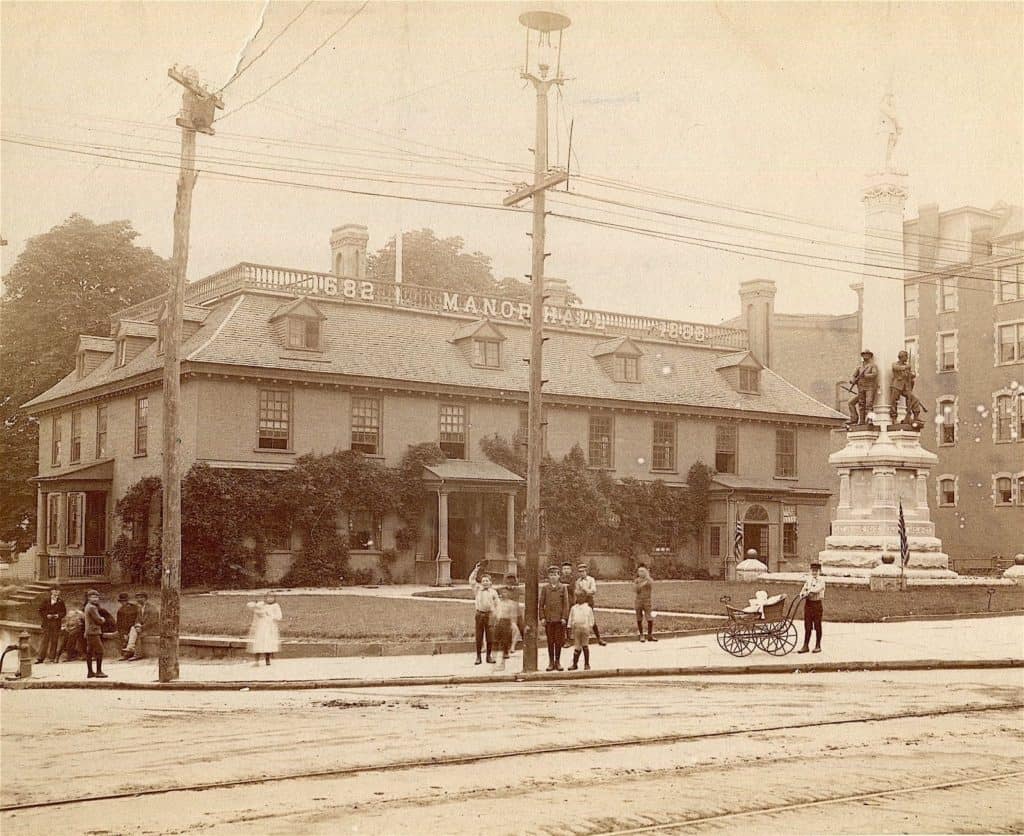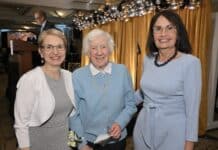
By Mary Hoar, President Emerita, Yonkers Historical Society, recipient of the 2004 Key to History, former Editor of the Yonkers Historian, Member of the Yonkers Landmarks Preservation Board
Monday, February 1st
February 1, 1893: The Board of Health of the Town of East Chester pulled down the dam on the Bronx River between Yonkers and Bronxville. The Yonkers Board of Health had ordered the dam removed January that year because the water stagnated, causing illness to our residents; owner H. Duden of Bronxville Road immediately got an injunction restraining Yonkers from destroying it. Duden, however, forgot to file for an injunction against East Chester. Plans for the dam’s destruction were kept secret until men arrived at the dam. Duden arrived a few hours later to find much of the dam already was down; a portion of the dam on the Yonkers side was left standing because of the injunction. The little left was pulled down several days later.
February 1, 1947: Louis Gelbinman of Pelton Street received a patent for a new way of making concrete; his new process created lightweight fireproof concrete to construct buildings, made from the residue left from burning pulverized coal. Gelbman, VP of Concrete Units Corporation in the Bronx, held 15 other patents for concrete manufacturing machinery.
Tuesday, February 2nd
February 2, 1928: The Yonkers Statesman offered every Subscriber an Accident and Pedestrian Insurance Policy; the policies, an announced additional service to their readers, were for any person between the ages of 15 and 70 who were not “totally blind, deaf or crippled to the extent the could not travel safely in public places.” Subscribers had to subscribe for one year and pay a $1 Registration fee. If a subscription was cancelled, the policy was cancelled. Policies could be given to multiple family members, such as husband, wife or any other member of the family meeting the restrictions, without individual subscriptions.
February 2, 1942:The City of Yonkers formally paid tribute to the parents of the first two Yonkers boys killed in World War II. City Manager Raymond Whitney, at a ceremony in City Hall, presented certificates to Mr. and Mrs. Julius Urban of Jackson Street, parents of the late John J. Urban, and Mr. and Mrs. Vincent Menzenski of Croton Terrace, parents of the late Stephen Menzenski.
Wednesday, February 3rd
February 3, 1933: Mayor Joseph Loehr took definitive steps to reorganized city government. His first action was to consolidate the Treasurer and the Comptroller’s Offices into the Department of Finance, with bureaus of Audit and Treasury.
February 3, 1944: The Guinea Gold, a publication for the men serving in New Guinea, ran an article about the “strikeless City of Yonkers, NY,” praising Yonkers’ national record in wartime labor harmony. Corporal John Crowley, serving with the Corps of Engineers there, sent the paper back to The Herald Statesman, with the note he was sending it to let them known that “our fair city had made the news even in this God-forsaken outpost.”
Thursday, February 4th
February 4, 1916: The Yonkers Chamber of Commerce not only recommended that a public dock be built in South Yonkers, but also drivers of horse-drawn carriages be required to obtain licenses.
February 4, 1944: Thomas H. Everett of Miller Place, Assistant Director of Horticulture and Senior Curator of Education at NY Botanical Gardens, was interviewed by radio personality Bob Hawk. Asked for professional advice for Victory Gardeners, Everett told Hawk to, “Start Early. Keep after it. And work hard.” Later in the interview, Hawk asked him what the biggest mystery of the Botanical Gardens was. The answer? Everett once found a camel in the cactus house, but never got a reasonable explanation of how the dromedary got in! Everett, who worked for NYBG for 55 years, was considered one of the world’s leading horticultural authorities.
Friday, February 5th
February 5, 1908: A bill was introduced in the Assembly for an appropriation of $50,000 to purchase the Manor Hall.
February 5, 1923: New York State State Industrial Commissioner Bernard L. Shientag appointed Sara McPike of Elinor Place, Secretary of the State Department of Labor. McPike, formerly the executive secretary in the advertising department of our electric works, was well known as an organizer, speaker, Democrat, and a proponent of women’s suffrage and social legislation in New York State.
February 5, 1924: Plans were submitted by the New York Telephone Company for the erection of a new central office building at 40, 42, and 44 Main Street. The building was to connect with the old building on Riverdale Avenue, creating an L-shaped building when finished.
Saturday, February 6th
February 6, 1932: Six armed gangsters, fleeing in a high-powered automobile, waged a running battle with Yonkers police through the streets of Yonkers. The chase started in Riverdale and ended at New Main and Herriot Streets, where authorities lost the trail of the fleeing criminals.
February 6, 1942: President Roosevelt selected Major General Joseph Stilwell, USA, to go to China on a special mission designed to coordinate the war efforts of the United Nations.
Sunday, February 7th
February 7, 1908: Representatives of the Federation of Labor protested awarding a contract to an out-of-town company that bid $20 less than Yonkers manufacturer David F. Allen. The board agreed to hold a hearing on the contract the next day.
February 7, 1925: Hundreds of gypsies, representing 48 tribes throughout the United States, wound through the walkways of Oakland Cemetery in Yonkers to attend the funeral of Nicholas John, the King of the Gypsies. The procession included: women of the tribes, dressed in colorful garments, beads and earrings, wailing their sorrow: men chanting prayers; a spokesman reading the gypsy ritual for the dead; and a band playing gypsy funeral airs. John, born in Russia 65 years earlier, came to the US with his dad, whom he succeeded as ruler of the tribe many years earlier. It was rumored the John’s brother Ritraera Jurka of 72 Riverdale Avenue would succeed him as King of the Gypsies.
For more information on the Yonkers Historical Society, Sherwood House and our upcoming events, please visit our website www.yonkershistoricalsociety.org, call 914-961-8940 or email yhsociety@aol.com.





